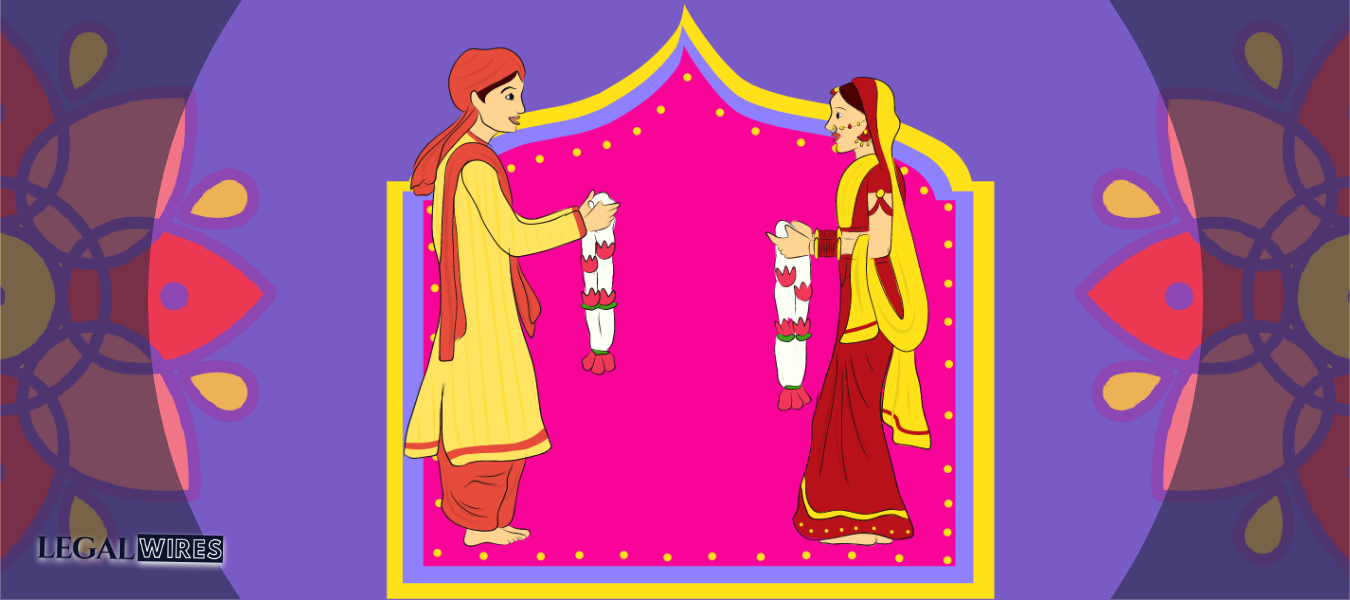The Allahabad High Court ruled on Wednesday that a marriage certificate from Arya Samaj Mandir or the Registrar of Hindu Marriages does not alone validate a marriage. The court stressed that customary rites, including saptapadi (seven steps), are essential for a Hindu marriage’s legal validity. The

Legal AI that cites and formats correctly
Allahabad High Court on Wednesday, held that a marriage certificate issued by Arya Samaj Mandir or the Registrar of Hindu Marriages does not by itself prove marriage between parties.
The court emphasized that customary rites and ceremonies, including saptapadi (seven steps), are essential for a Hindu marriage to be legally valid.
A division bench comprising Justices Rajan Roy and Om Prakash Shukla reviewed an appeal under Section 19(1) of the Family Courts Act, 1984, and Section 28 of the Hindu Marriage Act, 1955.
The case challenged a Family Court judgment about a disputed marriage between the appellant and respondent, citing a 20-year age difference and claims of fraud.
In a landmark decision with far-reaching implications, the Allahabad High Court has thrown a wrench into the works for couples opting for Arya Samaj marriages or marriages registered under the Hindu Marriage Act (HMA).
The court’s ruling clarifies a common misconception that simply obtaining a marriage certificate is not enough to validate a Hindu marriage under the HMA.
This case centres around Shruti Agnihotri, who challenged a marriage allegedly conducted by a spiritual leader, Anand Kumar Srivastava, without her consent. The court’s decision in this high-profile case sheds light on the essential requirements for a valid Hindu marriage and the potential consequences of neglecting them.
A Web of Deception: Guru, Minor Girl, and a Claimed Marriage
- A young woman (appellant) challenges a marriage allegedly conducted by a spiritual leader (Guru) in Lucknow when she was still a minor.
- The Guru claims they were married and registered the union, despite the appellant’s denial of consent.
- The appellant’s father files a police report against the Guru for fraud and forgery.
The Trial Court’s Decision and Appeal
- The trial court initially sided with the Guru due to inconsistencies in witness statements and a lack of medical evidence for the appellant’s claim of unconsciousness.
- Unhappy with the verdict, the appellant appeals to the Allahabad High Court.
The High Court’s Intervention: Why Certificates Alone Aren’t Enough?
- The High Court overturned the trial court’s decision, emphasizing Section 7 of the HMA.
- This section mandates the performance of customary rites and ceremonies as an essential element of a valid Hindu marriage. Hindu marriage is not considered ‘solemnized’ unless it is performed with the proper ceremonies and customs. If the ceremony includes Saptapadi (seven steps), the marriage becomes complete and binding when the seventh step is taken.
- Mere possession of certificates issued by Arya Samaj Mandir or the Registrar’s office doesn’t establish that these mandatory rituals were performed. The marriage Registration Officer cannot register a Hindu marriage under Section 8 of the Act if it is not valid. If the couple’s marriage ceremony did not follow Section 7, a certificate stating they are married does not make the marriage legitimate.
The Burden of Proof and the Missing Pieces
- The Court highlights that the burden of proving a valid marriage lies with the party claiming it (Srivastava in this case).
- Srivastava failed to substantiate his claim with evidence like the officiating priest or witnesses to the ceremony.
Relying on Precedent: Dolly Rani Case
- The High Court cites the precedent set in Dolly Rani v. Manish Kumar Chanchal.
- This earlier case established that proof of performing the requisite ceremonies is essential for a valid HMA marriage, regardless of any certificates.
A Cautionary Tale and a Reminder
- The judgment serves as a crucial reminder for couples opting for Arya Samaj marriages or marriages registered under the HMA.
- Both Arya Samaj Mandirs and Registrars can solemnize marriages, but proper conduct and documentation of all customary rites and ceremonies are paramount.
- Neglecting these essential steps can lead to legal complications and potentially render the marriage invalid.
Beyond the Verdict: Potential Implications
- This judgment may impact couples who have relied solely on certificates as proof of marriage.
- It’s advisable for such couples to revisit their wedding procedures and ensure proper documentation exists.
- The decision also sheds light on the ongoing debate surrounding the validity of Arya Samaj’s marriages within the legal framework of Hindu marriages.
Shruti Agnihotri v. Anand Kumar Srivastava





